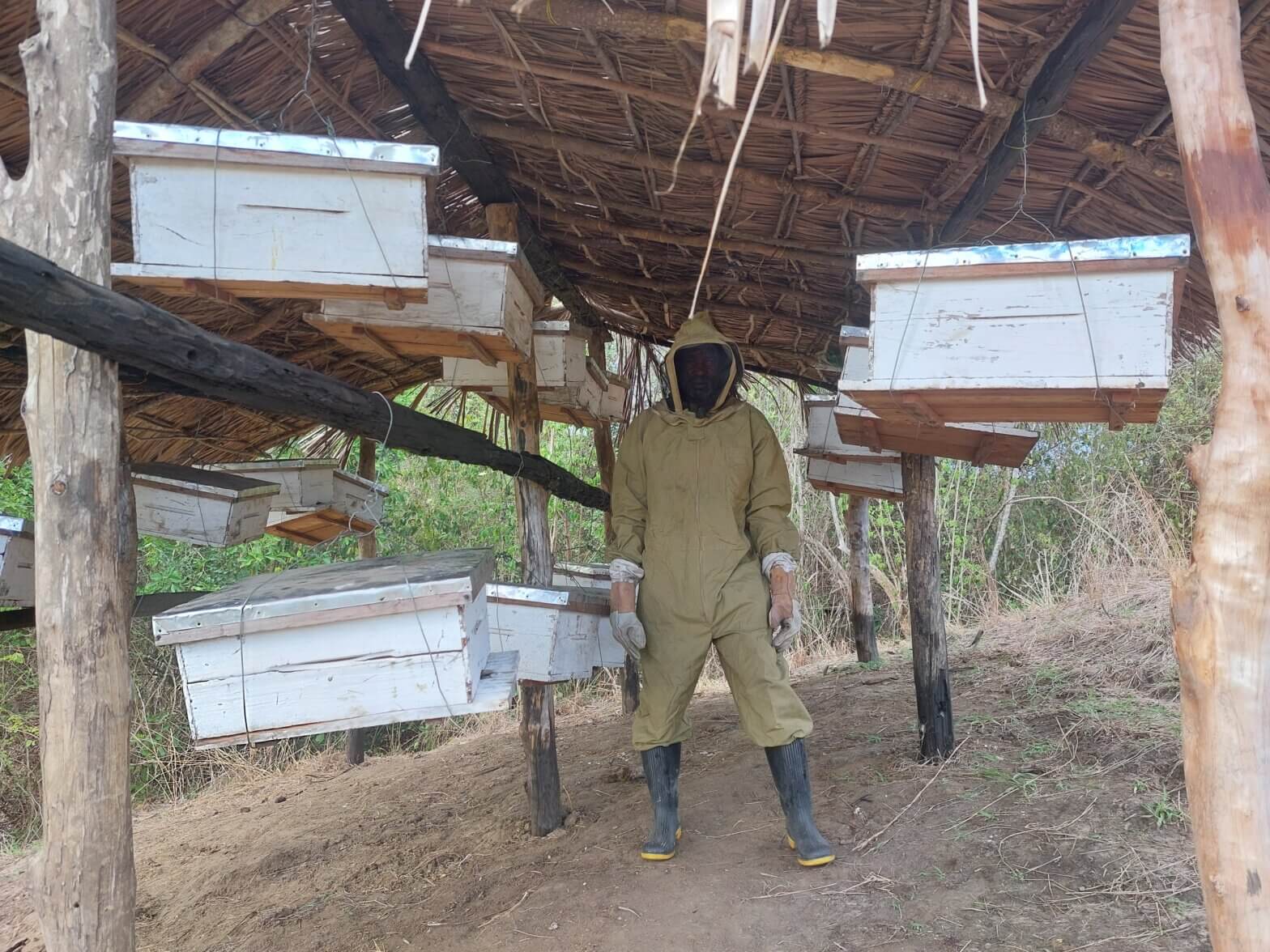Project Summary
The Kibaha Beekeeping Project in Tanzania, led by Ibrahim Hussein and supported by Weltweit and the Environmental Conservation Action, aims to harness the region’s rich biodiversity for sustainable economic growth. The project is establishing a Beekeeping Training Center funded by the BMZ Small Project Fund and the Ursula Merz Foundation, offering education and practical experience to new and experienced beekeepers. Through training, market access at trade expos, and environmental conservation efforts, the initiative seeks to increase local income, improve agricultural yields, and protect the Ruvu North Forest, promising a future of sustainable livelihoods and ecological resilience.
Project Manager
Country
Tansania
Status
Ongoing
Budget
55,300
Links
Partners
BMZ small project grant (Schmitz Stiftungen)
Ursula Merz Foundation
Sensory Minds GmbH
Bad Soden Beekeeping Association
Project goals
A training center for beekeeping with lecture room, storage for equipment,shopping frame for bee products, office space and sanitory facilities is constructed.
60 beekeepers are trained equipping them with beekeeping materials.
The beekeeping center and the Kibaha Environmental Conservation Action have participated in the Nane Nane and Saba Saba trade expo.
A detailed business strategy, ensuring the venture’s economic viability and sustainability for the next years, has been fine tuned.
The Kibaha Beekeeping Initiative
In the heart of Tanzania’s Kibaha District, a beacon of sustainability and ecological stewardship has emerged through the Kibaha Beekeeping Project. This initiative, born from the collaboration between Weltweit, the Environmental Conservation Action, and spearheaded by the visionary Ibrahim Hussein, aims to tap into the district’s untapped potential for beekeeping.
A Sustainable Venture
Beekeeping, an age-old practice, is being revitalized in Kibaha to create a symbiotic relationship between nature and economy. The district, renowned for its diverse flora and fauna, offers the perfect canvas for this green enterprise. Supported by the BMZ Small Project Fund and the Ursula Merz Foundation, the project’s cornerstone is the establishment of a Beekeeping Training Center. This center is not just a hub for learning but a catalyst for community transformation and environmental preservation.
Educational Outreach and Market Expansion
The project commenced with a robust campaign to raise awareness and impart knowledge to both seasoned and budding beekeepers. The newly inaugurated Beekeeping Training Center is set to broaden these endeavors, providing extensive courses and facilitating a rich exchange of expertise. A hands-on training facility complements the theoretical learning, allowing practitioners to hone their skills in a practical setting. To cement the project’s longevity, participation in local and international trade expos, such as Nane Nane and Saba Saba, has been initiated, carving out market avenues and broadening professional networks for the beekeepers.
Impact and Enduring Legacy
The Beekeeping Training Center is envisioned to evolve into a stalwart institution, offering consistent educational programs and serving as a nexus for cooperatives and individual beekeepers. The ripple effects of training youthful enthusiasts are manifold: bolstering local economies through honey and beeswax sales, enhancing crop yields via improved pollination, and safeguarding the Ruvu North Forest by providing sustainable alternatives to deforestation.
The Kibaha Beekeeping Project stands as a testament to the power of integrated development strategies. It’s a model that not only promises economic upliftment and environmental protection but also instills a sense of pride and ownership within the community. As the project flourishes, it is set to become a paragon of how beekeeping can be a cornerstone for sustainable living and ecological harmony.







